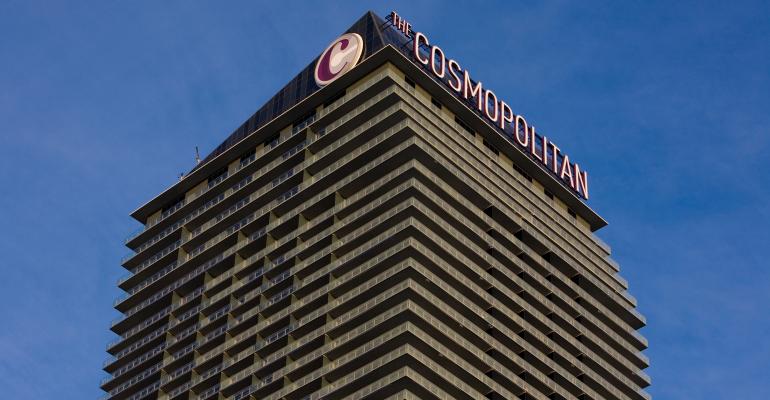Blackstone Inc.’s big announcement last week that it was selling its Cosmopolitan of Las Vegas resort and casino for $5.65 billion—a price tag nearly $4 billion more than it paid back in 2014—was the latest signal that investors are confident that the hotel sector’s future remains bright despite the massive hits the industry took from the pandemic.
“The sale is probably the most profitable sale of a single lodging property ever,” says Jan Freitag, senior vice president of lodging insights for STR and national director of hospitality analytics for CoStar Group.
It’s just the latest deal in the full-service sector (hotels with restaurant and meeting space in destinations favored by business travelers and conference attendees). The iconic Venetian casino resort and the Sands Expo and Convention Center also announced its $6.25 billion sale in March 2021.
These properties are trading at strong prices as investors looking past the below average occupancy rates across the U.S., betting these hotels will once again fill with guests as the recovery from the pandemic continues to unfold.
“These are long-term investors with long-term horizons,” says Freitag.
Investors spent $1.0 billion to buy full-service hotels in August 2021. That’s more than four times (a 442 percent increase) the amount they spent the year before, during the depths of the pandemic, according to data from Real Capital Analytics (RCA), based in New York City.
The amount of money spent by investors to buy these hotels has been gradually getting back to a healthy level over 2021. Over the first eight months of 2021, investors spent $11.1 billion on full-service hotels, more than double (a 244 percent increase) from the same, eight-month period the year before, according to RCA.
Prices for these properties has remained strong—especially relative to the income produced by the hotels, which still suffers with many empty rooms and silent meeting spaces as the Delta variant of the coronavirus continues to spread in parts of the U.S.
"Values have been holding because owners are optimistic about the recovery, although I think there’s a wide bid-ask spread for full-service assets currently," says Amit Govin, principal and CEO at Everwood Hospitality Partners, based in New York City. “We haven’t observed a significant discount to ask prices from what we experienced pre-pandemic.”
Fundamentals still rough for conference and convention hotels
The “upper upscale,” full-service hotels that serve many conference and convention attendees still had a lot of empty rooms this summer. In August 2021, just 55.6 percent of these rooms were occupied, according to STR. That’s a long way from a healthy occupancy rate—though it is a big improvement compared the first eight months of 2021, when an average of just 47.1 percent of these rooms were occupied.
“You can make the case the we are in the middle of a recovery that started after April 2021,” says Freitag.
Many other kinds of hotel are recovering much more quickly from the pandemic—especially limited service hotels located in vacation destinations. On average, among all types of hotels, 63.2 percent of rooms were occupied in August 2021, up from an average of 57.1 percent over the first eight months of 2021, according to STR.
Economists also measure the lost income at conference and convention hotels in terms on group sales of hotel rooms, when more than 10 rooms are reserved at once, often for conference attendees. Group sales totaled roughly 3.8 million room nights a month in both July and August 2021. That’s a huge improvement from just 840,000 room nights bought in group sales in July 2020 and 1.2 million in August 2020. But it’s still a long way from the healthy level of well over six million room nights sold in group sales a month in July and August of 2019.
Of those group sales of hotel rooms, relatively few were bought for conference attendees.
“There is a lot of group demand on weekends for leisure travelers attending weddings and family reunions,” says Freitag. “What is missing is the Tuesday and Wednesday stays for people attending city-wide conventions.”
Investors don’t seem to be worried—even though demand is still terrible for conference and convention hotels. “Anecdotally… negotiations for high-end hotels all start with the 2019 results,” says Freitag. “They omit 2020 and 2021 as negative outliers.”

